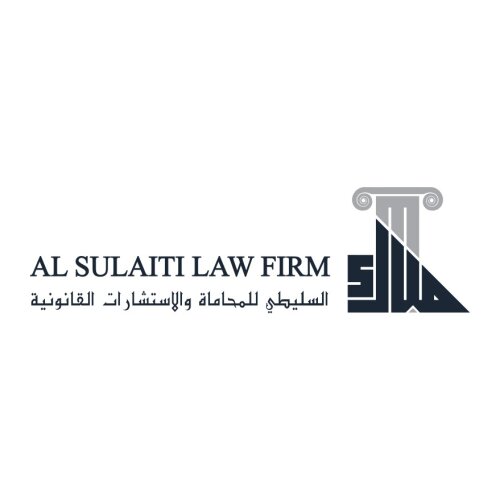Best ESG Advisory & Compliance Lawyers in Doha
Share your needs with us, get contacted by law firms.
Free. Takes 2 min.
List of the best lawyers in Doha, Qatar
About ESG Advisory & Compliance Law in Doha, Qatar
ESG stands for Environmental, Social, and Governance. ESG advisory and compliance involves ensuring that businesses and organizations operate responsibly with respect to environmental protection, social impact, and proper governance structures. In Doha, Qatar, a growing emphasis on sustainable development, ethical business practices, and transparency underscores the importance of ESG compliance for companies across all sectors. The government and regulators have started to introduce frameworks and requirements that align with international standards while addressing Qatar’s unique social and economic contexts.
Why You May Need a Lawyer
Legal professionals specializing in ESG advisory and compliance can provide vital support in several situations. Organizations may require assistance when interpreting new ESG regulations, integrating ESG principles into business practices, or ensuring proper disclosure and reporting. Legal help is also valuable in managing environmental permits, handling investigations related to social or labor issues, creating or updating governance documentation, and responding to audits conducted by regulators or investors. For companies engaging in mergers, acquisitions, or public offerings, ESG compliance can significantly impact deal structures and valuations. Professional legal advice ensures that your business not only complies with local laws but is also prepared for cross-border transactions where international ESG expectations apply.
Local Laws Overview
In Qatar, several legal frameworks and regulations affect ESG advisory and compliance. The Qatar Financial Centre (QFC) and Qatar Stock Exchange have introduced guidelines and reporting requirements that encourage or mandate ESG disclosures, particularly for publicly listed companies and financial institutions. Environmental laws are enforced primarily through the Ministry of Environment and Climate Change, addressing issues such as pollution control, resource management, and sustainability reporting. The Labour Law in Qatar governs many aspects of the social component, focusing on workers’ welfare, rights, and workplace safety. Governance standards are set forth by agencies like the Qatar Central Bank, which regulate transparency, anti-money laundering practices, and board responsibilities in financial institutions. Companies operating in Doha must be aware of these laws and their implications across internal policies, supply chains, and stakeholder relationships.
Frequently Asked Questions
What does ESG mean and why is it important in Qatar?
ESG refers to Environmental, Social, and Governance factors that influence how businesses operate. In Qatar, ESG is increasingly important due to the country's commitment to sustainable development and international investment expectations.
Are ESG requirements mandatory for all companies in Doha?
Not all companies are required to follow ESG reporting or practices by law, but publicly listed companies and many large entities are subject to specific ESG disclosure rules and industry guidelines.
Which governmental authorities oversee ESG compliance in Qatar?
The Ministry of Environment and Climate Change, Qatar Financial Centre, and Qatar Stock Exchange play key roles in enforcing and guiding ESG policies.
How do local environmental laws impact businesses?
Qatar’s environmental laws set standards for waste management, emissions control, and resource usage. Companies must comply to avoid penalties and support the nation’s environmental goals.
What are common ESG-related legal risks?
Risks include non-compliance penalties, loss of business licenses, reputational damage, investor withdrawal, or exclusion from government contracts.
Can ESG compliance affect attracting investment?
Yes. Many investors, especially international ones, now include ESG criteria when choosing where to invest. Compliance makes companies more attractive to these investors.
Is ESG reporting required for all foreign companies operating in Qatar?
Foreign entities may need to comply with local ESG rules if they are publicly listed or operate in regulated sectors. Some may also be subject to reporting due to parent company policies or stakeholder demands.
Do Qatari laws address social and labor issues within ESG?
Yes. The Labour Law provides standards on wages, working hours, safety, and worker welfare, all of which fall under the social aspect of ESG.
How can a company begin developing an ESG compliance program?
A typical starting point includes conducting a risk assessment, reviewing applicable laws, establishing internal policies, setting up reporting frameworks, and obtaining professional legal advice.
What is the role of legal counsel in ESG audits or investigations?
Legal counsel assists with preparing documentation, representing the company in communications with authorities, and ensuring responses comply with laws and protect the company’s interests.
Additional Resources
Key resources for ESG advisory and compliance in Doha include the Qatar Financial Centre Regulatory Authority, Qatar Stock Exchange, and Ministry of Environment and Climate Change. The Qatar Chamber of Commerce and Industry offers guidance and sector-specific support. For industry-specific queries, the Qatar Central Bank and Qatar Investment Authority provide relevant materials and regulatory documents. These organizations often publish reports, regulations, and best practices to help businesses navigate ESG obligations.
Next Steps
If you need legal assistance regarding ESG advisory and compliance, start by identifying the specific areas where you need support such as environmental permits, social compliance, or governance reviews. Gather relevant documentation and regulatory communications related to your business. Reach out to a legal professional with experience in corporate, commercial, or environmental law in Qatar, and inquire about their expertise in ESG matters. Prepare to discuss your business operations, sector, and any international aspects relevant to your concerns. A lawyer can help assess your compliance status, develop or update policies, and represent your interests in dealings with regulators or investors.
Lawzana helps you find the best lawyers and law firms in Doha through a curated and pre-screened list of qualified legal professionals. Our platform offers rankings and detailed profiles of attorneys and law firms, allowing you to compare based on practice areas, including ESG Advisory & Compliance, experience, and client feedback.
Each profile includes a description of the firm's areas of practice, client reviews, team members and partners, year of establishment, spoken languages, office locations, contact information, social media presence, and any published articles or resources. Most firms on our platform speak English and are experienced in both local and international legal matters.
Get a quote from top-rated law firms in Doha, Qatar — quickly, securely, and without unnecessary hassle.
Disclaimer:
The information provided on this page is for general informational purposes only and does not constitute legal advice. While we strive to ensure the accuracy and relevance of the content, legal information may change over time, and interpretations of the law can vary. You should always consult with a qualified legal professional for advice specific to your situation.
We disclaim all liability for actions taken or not taken based on the content of this page. If you believe any information is incorrect or outdated, please contact us, and we will review and update it where appropriate.
















